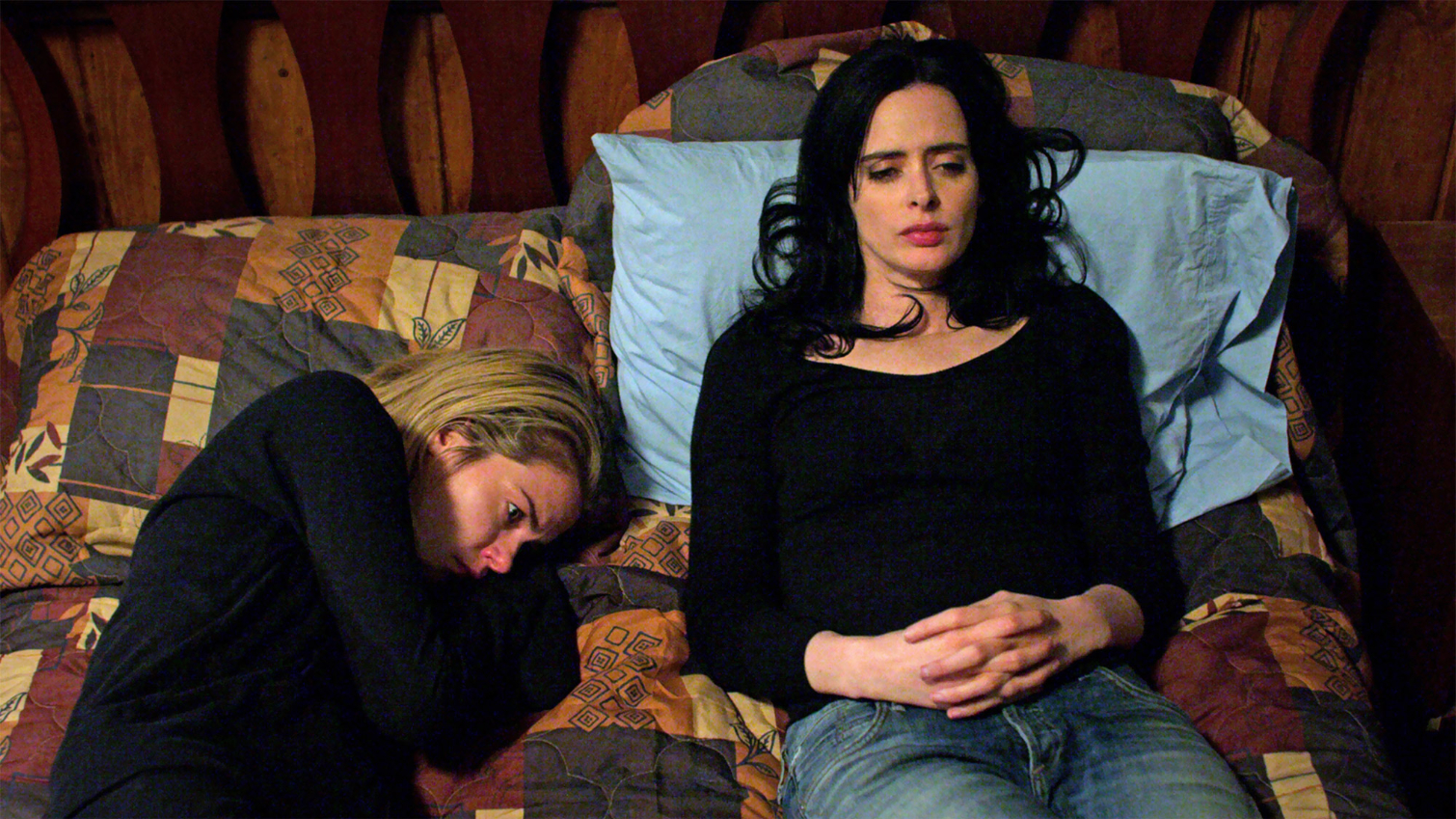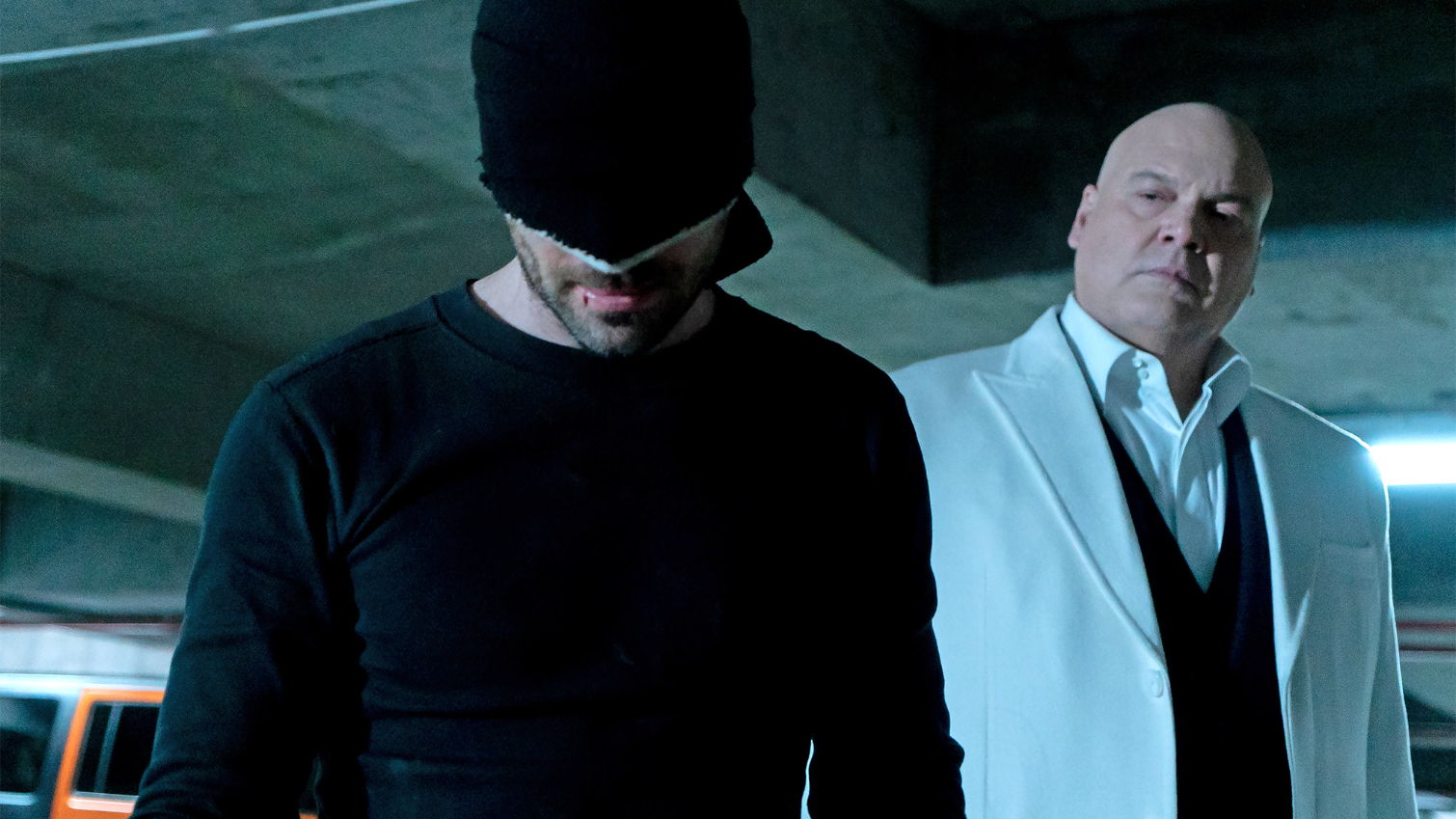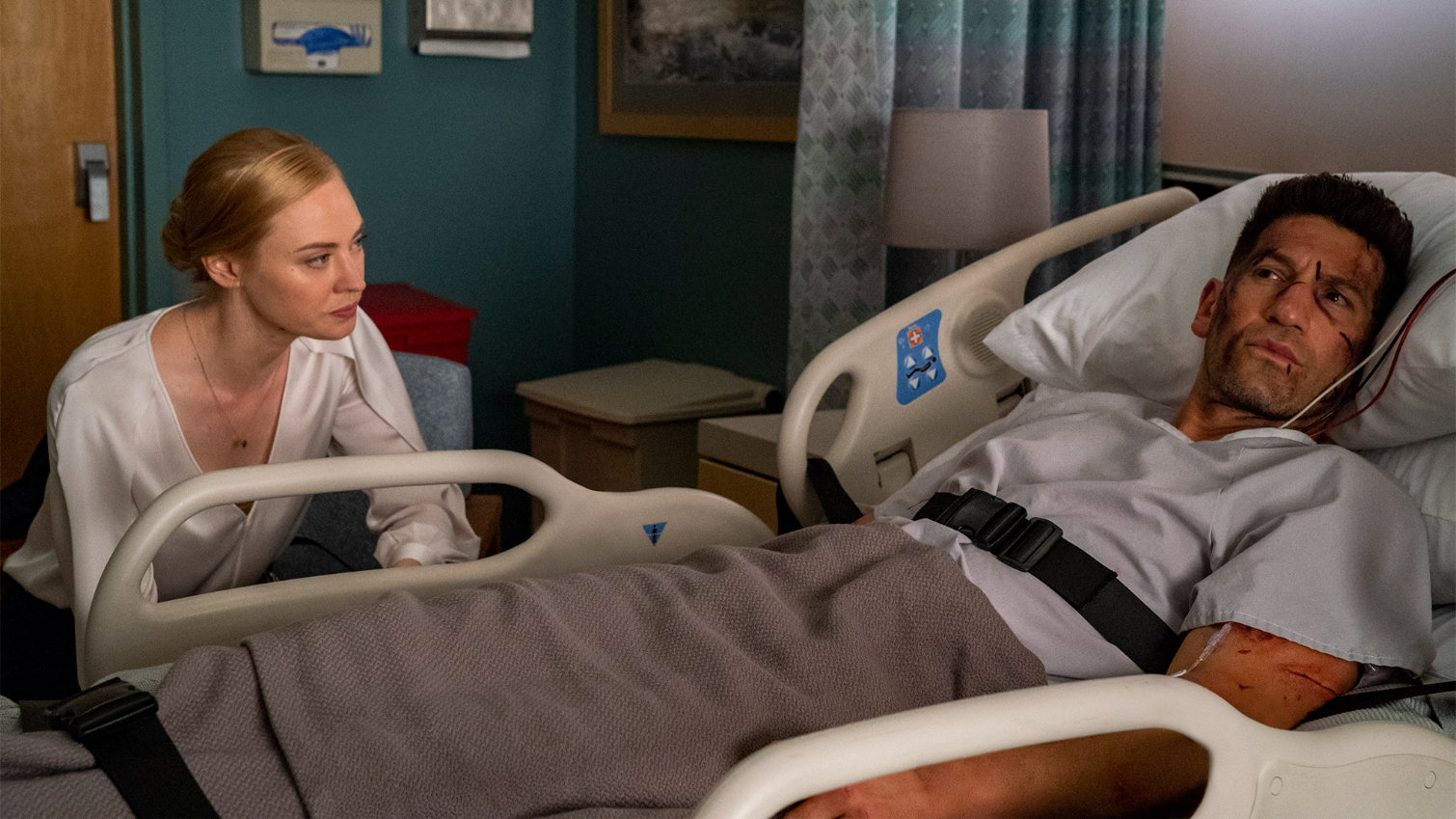RIP Marvel on Netflix: The Good, The Bad and What’s Next
Marvel's Netflix shows marked a fun, flawed transitional period that Marvel should learn from for future Disney Plus shows.
More than four years ago, Marvel made its Netflix live-action super hero debut with season one of Daredevil, ushering in what was expected to be an exciting new era for its small-screen cinematic universe following ABC’s Agents of S.H.I.E.L.D. and Agent Carter.

Since then, it has produced five other shows for the streaming giant—Jessica Jones, Luke Cage, Iron Fist, The Defenders and The Punisher—but, sadly, its Netflix extended universe concluded on Friday, June 14, with the release of Jessica Jones season three. To fans’ shock, all shows (aside from the one-season Defenders miniseries) had been canceled in late 2018 and early 2019 to make way for brand-new series on Disney’s own forthcoming streaming service, Disney+, launching November 12.
So, after 148 episodes of crime-fighting super heroes and vigilante justice, was Marvel’s Netflix experiment worth it? And what can Marvel improve upon in its upcoming Disney+ titles?
Auspicious beginnings
With the exception of Iron Fist season one, arguably the worst of all the Marvel Netflix seasons, the first seasons of each show were filled with impressive writing, fight choreography and acting. Daredevil, the first of the shows to premiere, proved that Marvel wasn’t afraid to get gritty and bloody, a welcome change of pace from its family-friendlier films. It was also a much-needed palate cleanser from The 2003 Film That Shan’t Be Remembered. And who could forget that first epic single-shot hallway fight?
Sister shows Jessica Jones and Luke Cage continued the trend of strong starts for New York’s heroes. In the first season of Jessica Jones, Krysten Ritter’s performance as the tough-as-nails, whiskey-chugging Alias investigator proved that a woman-led super hero show was long overdue, and the mind-controlling Kilgrave (David Tennant) was so good that he made Rolling Stones’ list of greatest 40 greatest TV villains of all time. Without sacrificing humor or action, season one tackled complex issues such as abuse and PTSD, making it (in my opinion) the best and most consistent season of the whole batch of shows.

Luke Cage, played by Mike Colter in several episodes of Jessica Jones, proved popular enough to carry his own eponymous show on his super-strong shoulders. Though slightly overstuffed with two Big Bads, its first season had strong momentum, a diverse cast of phenomenal supporting characters and a compelling backstory for Luke, and its success set the stage for future black-led properties, including 2018’s Black Panther movie and DC’s Black Lightning show on The CW.
But shortly after Luke Cage, criticism arose surrounding the casting of Finn Jones as Danny Rand, inciting a confusing shift in the overarching vision and quality of the Netflix EU.
Diminishing returns
Unfortunately, overall, too-long episodes, uneven pacing and less interesting villains plagued many subsequent seasons of these four shows, something not even the small-screen equivalent of the MCU’s Avengers, The Defenders, could solve. Seeing the heroes together in one miniseries should have been an invigorating crossover event, but instead it felt awkward and, dare I say, a little boring? While Marvel’s network shows were finally finding their groove after semi-messy starts, the Netflix ones were conversely starting to feel bloated and stale.

When The Punisher premiered in late 2017, its extra-gory hyperviolence was a welcome break from the now-tired formula of its predecessors, and Jon Bernthal did justice to the gruff, light-on-words Frank Castle, but what could have been an exciting new phase of the Netflix extended universe was instead the beginning of its end—the first round of cancelations was imminent.
The timing of the news couldn’t have been worse, with many of the shows ending on game-changing twists: the rise of Kingpin in Daredevil, Luke Cage’s inheritance of Harlem’s Paradise and a new (nonwhite!) Iron Fist, all pretty big cliffhangers that promised to breathe new life into subsequent seasons. Only the middling third season of Jessica Jones provides its hero with proper closure, but — spoiler alert if you haven’t finished yet! — its final-episode attempt to give a more finite ending to the other shows, while well intentioned, feels rushed and forced.
The future of the small-screen MCU
Though there was certainly plenty to love and admire throughout Marvel’s four-year tenure on Netflix, the shows might best be remembered as an experimental precursor to the upcoming Disney+ series. Marvel announced that five shows are currently in development, most of which will feature actors from the preexisting MCU, including Anthony Mackie (Falcon), Sebastian Stan (Winter Soldier), Elizabeth Olsen (Scarlet Witch), Paul Bettany (Vision), Tom Hiddleston (Loki) and Jeremy Renner (Hawkeye).
Launching with already well-known characters is a strategic move, as it feels less like a do-over of its Netflix properties and more of a continuation of what fans already love. It also eliminates the need for lengthy origin stories, which were beginning to feel formulaic and monotonous on Netflix. Honestly, the idea of lounging on the couch and jumping right back into a world we already know from multiple trips to the theater sounds awesome, and it should allow for faster-paced, more narratively tight seasons.
If — or, more likely, when — Marvel decides to introduce us via Disney+ to new characters never before seen in the MCU, they’d be smart to fight the streaming-service urge of 60-plus-minute episodes, as nearly every episode of its Netflix shows could have benefited from a 15-minute trimdown. Or, better yet, they could offer lower-budget movies that feature smaller characters or celebrate big crossover events. Imagine what Defenders could have been as a brisk, action-packed, 120-minute movie instead of a drawn-out series.
If the Netflix shows were any indication, we’re sure to see some exciting, risk-taking shows in Marvel’s future—and because they’ll exist on Marvel’s own service, the company will have more control over cancelations, hopefully resulting in more complete narratives. Between the end of its Netflix run and the MCU-changing Endgame, this is the perfect time for Marvel to push its content to new highs and to explore bigger stories than ever before. And, as a longtime fan, I hope they stick the landing.
Sign up to get the BEST of Tom's Guide direct to your inbox.
Get instant access to breaking news, the hottest reviews, great deals and helpful tips.
Daniel Toy is a Tom's Guide contributing writer who covers television, film and all things pop culture. When he's not arguing about the best and worst series finales of all time, he's flipping through his LCBS's dollar bin or chugging through his Switch backlog. His other writing and editing credits include BuzzFeed, Marvel, Scholastic, Callisto, Breadcrumbs and Syndicated, and he strongly believes The Truth Is, indeed, Out There.
